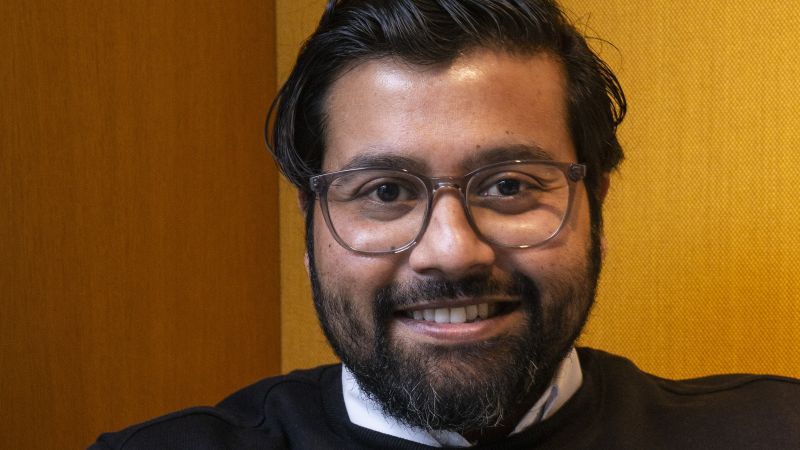Philip Jenkins has highlighted the demographic shift of Christianity from the North to the Global South which includes Christians on three continents: Asia, Africa, and Latin America. Despite this development, the churches in Asia and Africa continue to focus their attention primarily on Christians in the West. Nevertheless, in the past two decades African Christians have begun to make contributions to theological thinking in South Asia.
I became aware of this during my time with Asia CMS in Pakistan when the Samaritan Strategy course known as Hope for Africa was translated and utilized to train the pastors and laity in Pakistani churches. However, the content of the course was based on the primal religious worldview and addressed the misconception about the material and spiritual world in the Christian worldview and is less directly relevant to the Islamic context of Pakistan. Still, it was a great contribution to the lives of Pakistani Christians. Recently African churches have provided theological training opportunities and developed partnerships with some churches in Pakistan. For example, a Christian from Rawalpindi went to study theology in Nairobi, Kenya and the pastor of an independent church in Gujranwala regularly holds worship services with the assistance of an African Christian ministry. These two examples from the past decade reflect the growing partnership between Asian and African Christians, which needs more strategic and conscious efforts to nurture a strong church in the Global South. At the moment this partnership faces three challenges, which both Asian and African churches need to address in order to grow strong in Christ.
The first challenge is the tendency to look primarily towards the West for new theological contributions. There is much that Christians in Africa and Asia can learn from each other, but the focus on Western theology stunts the growth of the church in Asia and Africa. In his book The New Faces of Christianity, Philip Jenkins mentions the similarity between Asian and African churches, especially in terms of their hermeneutical approaches to the biblical text and contextual realities of poverty, injustice, and poor governance. In these regards, Christians in both parts of the world can nurture each other’s Christian lives through theological reflection grounded within their own contextual realities. Such theological collaboration will also be a powerful witness to Christ in communities that the world has marginalized in different ways (for example along the lines of race, resources, calamities, etc.). In the Anglican community, the strong presence of African Christians is already a reminder of the multicultural and multiethnic character of the church.
A second challenge arises from a narrow view of partnership that focuses primarily on material resources. The growing partnership between Asian and African churches needs to develop in terms of the mutual sharing of different kinds of resources. In the time of the Apostles, the early churches strengthened one another through sending people as well as money. Today Asian and African churches tend to rely heavily on churches in the West, which often takes away this aspect of mutual enrichment. Each church (Western, African, and Asian) should contribute to the advancement of God’s kingdom in its own way. African and Asian churches need to overcome the view of partnership based on accumulating resources for their contexts and become churches that not only witnesses in their own context using their own resources but are also committed to readily extending them to others.
Closely related to this narrow view of partnership is the challenge of governance structures in Asian and African churches. They both received leadership models from Western contexts, which were very much centered on the social realities of modernity in the last century. These have not been evaluated in terms of whether they cater to the needs of the local realities of Christians in other parts of the world. They fundamentally lack the accountability structures that are otherwise natural to societies in Africa and Asia. Consequently, there are often allegations about the misuse of resources in Asian and African churches. Such allegations negatively impact Christian witness in African and Asian societies, where people are already critical of the political leadership and suspect them of being corrupt. If the church is not clear of these allegations, how can it witness to the larger society (especially in Asia where it is often a minority)? Few steps are taken to ensure accountability among Christians in Asia and Africa. The church development organizations in the West have created mechanisms to at least ensure transparency in relief and development work, but accountability is not only a matter of organizational structures; it is a Christian attitude that is answerable to God and each other in Christ. Overcoming this obstacle in African and Asian churches will pave the way for Christians to see beyond the attitude of acquiring resources for their own communities and think more in terms of the fellowship of the global community of believers in Christ.
The church has always been multicultural and multiethnic in composition, which has nurtured a strong witness to Christ around the world. Philip Jenkins has foreseen the next Christendom in the Global South. Whether it will be a ‘Christendom’ or not is not my concern in this blog. Either way, the demographic shift of Christianity to the Global South demands a partnership between Asian and African churches to strengthen the body of Christ and believers everywhere for the task of advancing God’s kingdom.
Ihtsham Ravi is a student in the Initial Graduate School at the Protestant Theological University in Groningen, the Netherlands.
Photo Credit: Ihtsham Ravi




